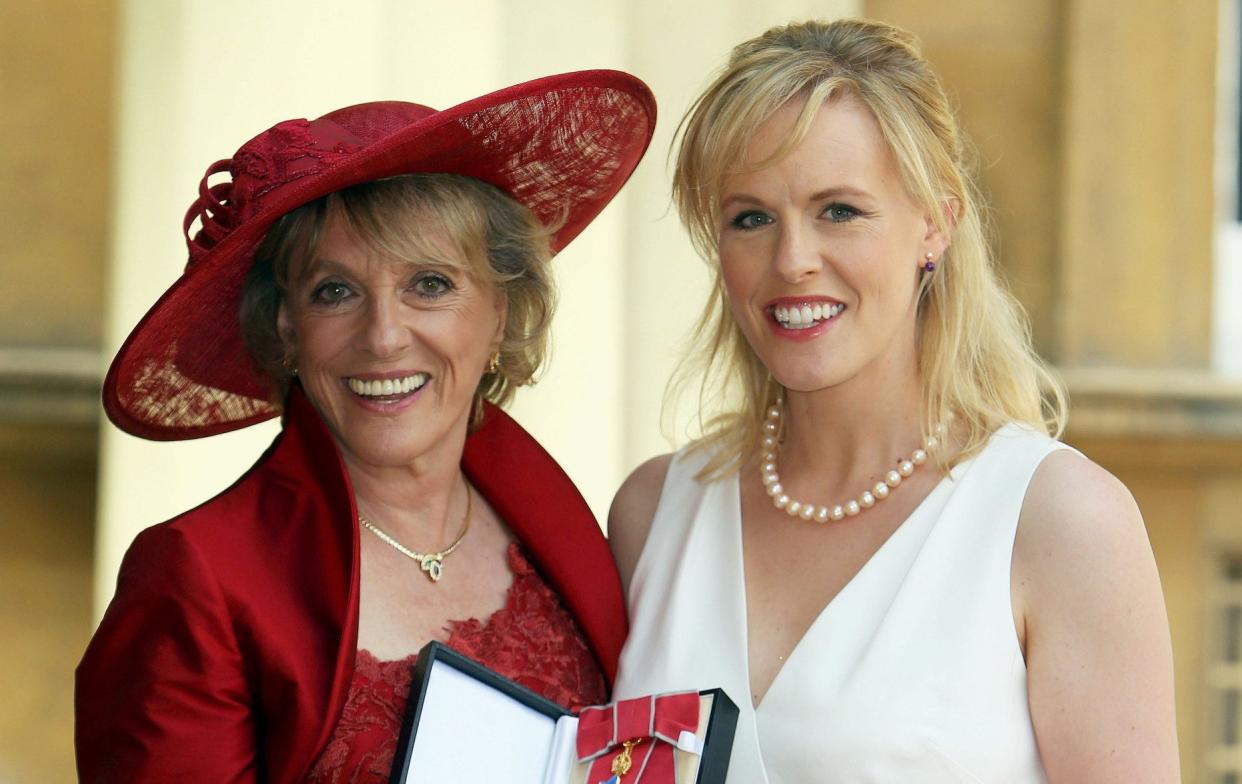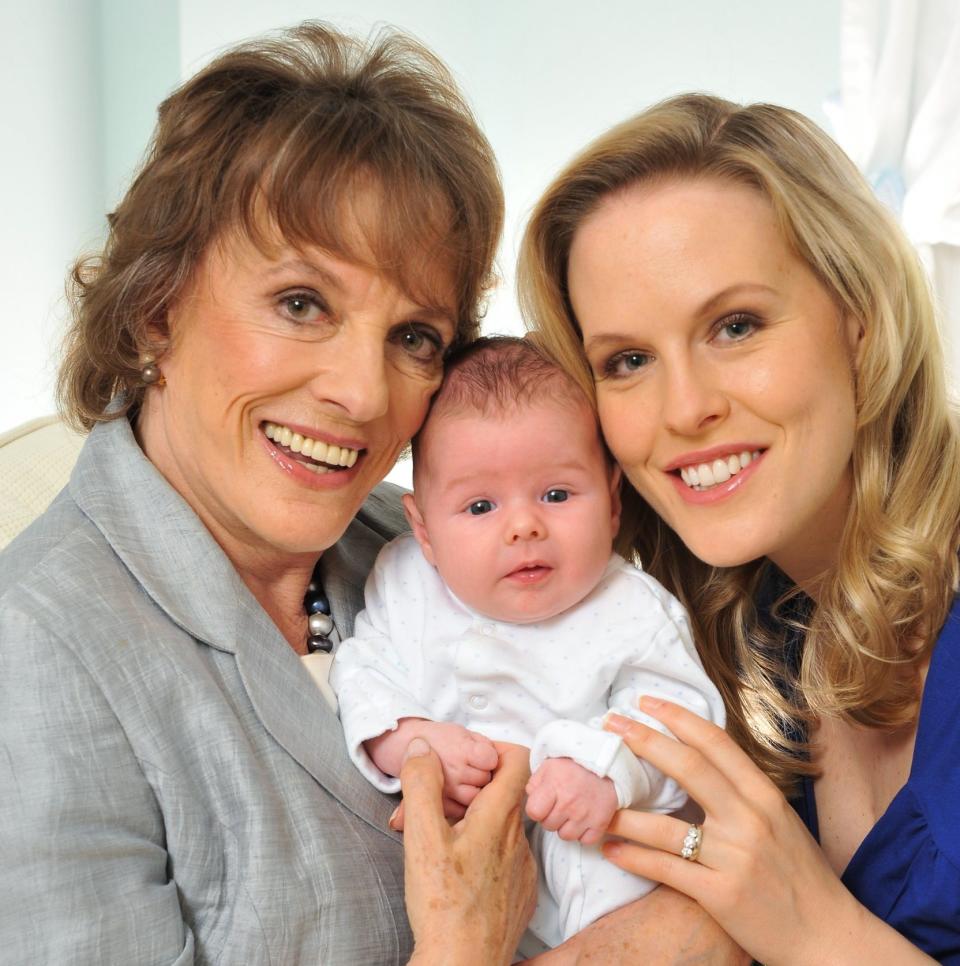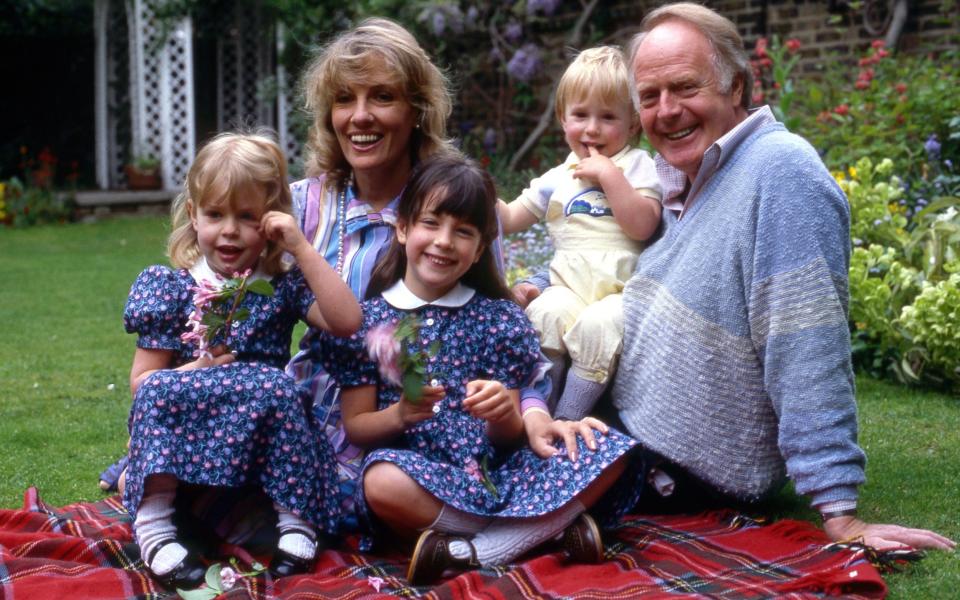Esther Rantzen’s daughter would ‘ground her plane’ if she decided to fly to Dignitas

- Oops!Something went wrong.Please try again later.
Dame Esther Rantzen’s daughter has said that she would “want to ground her [mother’s] plane” if she decided to fly to the Dignitas clinic in Switzerland to end her life.
The comments come after Dame Esther said that she is considering assisted dying if her condition does not improve after treatment for stage four lung cancer.
Her daughter Rebecca Wilcox told ITV’s Good Morning Britain on Tuesday that she would not want her to go, saying: “I personally would want to ground her plane if she was going to fly to Zurich but I know it’s her decision. I just don’t ever want her to go.”
Dignitas is a Swiss organisation providing physician-assisted suicide to members.
In an interview with BBC’s The Today Podcast, Dame Esther said that her next scan in a few weeks would tell her “whether the miracle drug is performing its miracle or whether it’s given up”.
She added: “I have joined Dignitas. I have in my brain thought, well, if the next scan says nothing’s working I might buzz off to Zurich – but it puts my family and friends in a difficult position because they would want to go with me.
“And that means that the police might prosecute them. So we’ve got to do something. At the moment, it’s not really working, is it?”
Asked on Tuesday morning whether it was a family decision, her daughter said: “I think you have met my mother and I think you would know that she never makes a decision in complete isolation but she doesn’t care what anyone else thinks.”
Addressing how they are feeling as a family, Ms Wilcox added: “It’s horrific and she always promised us she would live forever and she’s not usually one to break her promises, so we’re a little bit upset about that.
“But the joy of having this Christmas – it feels like a Christmas miracle and I hate saying that because it’s so saccharine and that is not what my family’s about – but when we got the diagnosis in January, we never thought we would have this Christmas again.”

Lee Rowley, the housing minister, has said that Parliament should look again at assisted dying laws, which currently state that assisted suicide is banned in England, Wales and Northern Ireland, with a maximum prison sentence of 14 years.
Dame Esther had called for MPs to be given a free vote on changing the rules about assisted dying because she believed it was “important that the law catches up with what the country wants”.
As a result of the high-profile revelation, Mr Rowley called for a “big discussion and debate” about assisted dying in the coming years as he insisted opinions on the matter go beyond traditional party lines.
Asked for his view on Dame Esther’s remarks, Mr Rowley told Sky News: “There is no perfection in any policy and we have to be very, very careful about this.”
Challenged on the existing ban on assisted suicide in the country – which means Dame Esther’s family could face up to 14 years in jail if they were to accompany her to Dignitas – Mr Rowley replied: “I think we should look at all of that.
“I just really struggle with this on a personal level, I know lots of colleagues do as well. I think we need to go through it, at the point when it’s looked at by Parliament again we’ll all have the opportunity to go through it, we’ll all have the opportunity to discuss it in places like this.
“It will be a big discussion and debate the country has. But there are no absolutes here, it’s all about trying to find the right balance but it’s also about recognising human life is very sacred and we should be very careful.”
Eight years ago, MPs voted three to one against giving second reading to a bill tabled by the Labour backbencher Rob Marris that would have allowed terminally ill patients to be supplied with a lethal dose of drugs.

Kit Malthouse, a Conservative MP and former Cabinet minister, has urged all political parties to include a pledge in their manifestos for time to be set aside in the next parliament to debate a bill on the issue.
“There’s nothing coming back this session in terms of private members’ bills, and it doesn’t look to us like there’s any legislation we can amend,” Mr Malthouse said.
“The last substantive vote was in 2015 and things have moved on very significantly since then. Sentiment in the House has changed quite significantly. What we think the most sensible thing to do is for all the parties to commit in their manifestos that there will be government time for a bill in the next parliament.
“From our point of view, every day that goes by is consigning people to horrible deaths and to horrible choices, like poor Esther Rantzen. We’d like to see change sooner, but for the moment what we’re asking for is this manifesto commitment.”
Asked whether her mother had made the right decision, Ms Wilcox said: “Absolutely. We’re allowed to make decisions about everything in our own lives.
“We’re allowed to make this decision and I know this is constantly said about our pets, so I have a very elderly horse who will have to be put down if something happens to him and I would be considered inhumane if I didn’t do that.
“And yet if mum is experiencing such dreadful symptoms and there is no hope, then why shouldn’t she be able to make that decision?”
Asked if she would go with her mother when the time comes, she replied: “Legally I can’t say that because I’d get in trouble but I hear Switzerland is very nice.”
Dame Esther became a household name at the BBC and is best known for presenting That’s Life!, – a programme featuring a mix of investigations, topical issues and entertainment – from 1973 to 1994.
In addition to her success as a journalist and broadcaster, she also set up the charity Childline in 1986.

